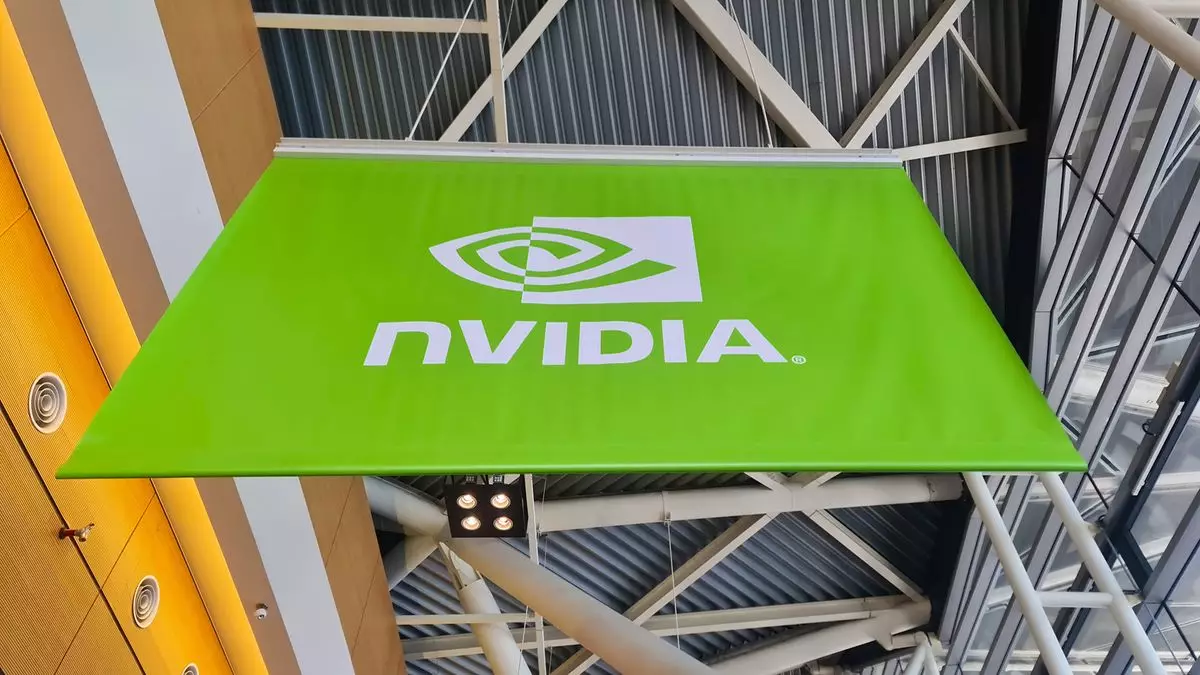Nvidia, a cornerstone in the graphics processing unit (GPU) market, finds itself embroiled in a significant legal battle reminiscent of a cat-and-mouse game with litigation. This prominent tech giant is currently appealing a class-action lawsuit that dates back to 2018. At the heart of this lawsuit is an allegation claiming Nvidia misled its investors about its substantial reliance on the cryptocurrency sector for sales and revenue, which purportedly constitutes a breach of the Securities Exchange Act of 1934. It’s a situation that illustrates the high stakes involved not just for Nvidia, but also for investors who navigate the tumultuous waters of tech investments.
The legal landscape surrounding Nvidia is not only complicated by the lawsuit itself but also by the implications it holds for corporate accountability in the tech industry. Earlier, in 2022, Nvidia settled with the Securities and Exchange Commission (SEC) for $5.5 million over charges related to insufficient disclosures about how much of its GPU sales were driven by cryptocurrency mining. This previous settlement adds layers to the current litigation, as investors and observers question the company’s transparency.
The recent developments regarding this lawsuit reached the U.S. Supreme Court, which has taken on the responsibility of deliberating whether the suit should be dismissed based on admissibility criteria set forth in the 1995 Private Securities Litigation Reform Act. This act serves to mitigate the risk of frivolous lawsuits, an important legal safeguard designed to prevent the court system from becoming overwhelmed with unsubstantiated claims. However, the implications of such a dismissal extend far beyond Nvidia, as the Supreme Court’s ruling could establish a precedent affecting all private litigants in securities fraud cases across the nation.
During the Supreme Court hearings, tension brewed between the justices and arguments posited by Nvidia’s representatives. Justice Ketanji Brown Jackson raised significant concerns about the expectations placed on plaintiffs at the preliminary stages of litigation, suggesting that requiring them to present substantial evidence upfront may stymie legitimate claims. This exchange underscores a critical division in the legal community: the need for accountability versus the potential for abuse of the legal system.
While the legal ramifications are substantial, they also raise a more personal question regarding the motivations of investors involved in this lawsuit. Given Nvidia’s robust growth and market performance since 2018, one cannot help but wonder who exactly is behind the push for this ongoing litigation. Are these class-action plaintiffs those dissatisfied investors who exited the market prior to Nvidia’s remarkable recovery and subsequent rise, or are they individuals who anticipated a more significant return that never materialized? The financial trajectory of Nvidia over the past several years, marked by unprecedented demand for its products, complicates the narrative surrounding this lawsuit.
This reflection brings to light the relationship dynamics between investors and corporations in rapidly evolving sectors like technology. The cryptocurrency market’s surge and subsequent decline shed new light on the risks that investors assume in such volatile environments. Investors who once held Nvidia stocks but later divested might rue their decisions now, especially when observing other stakeholders reveling in the company’s current success.
As the Supreme Court weighs the merits of the arguments presented, the outcome carries potent implications. Should Nvidia prevail in its appeal, future plaintiffs may find themselves facing stricter requirements on evidentiary standards before their cases are even considered. This scenario could effectively erect barriers for individuals seeking redress against major corporations for alleged wrongdoing, potentially discouraging valid claims from being heard.
Conversely, a ruling favoring the plaintiffs might embolden investors to challenge corporate actions while forcing companies like Nvidia to operate with greater scrutiny regarding disclosures. The delicate balance between fostering a robust economy and ensuring that companies are held accountable for their actions remains fraught with challenges, especially in a marketplace that thrives on rapid growth and innovation.
As Nvidia effectively navigates this turbulent legal landscape, observers must remain vigilant about the implications of their journey. The outcome of this lawsuit could redefine not only Nvidia’s accountability but also shape the broader arena of corporate governance and securities law in the dynamic tech sector.


Leave a Reply